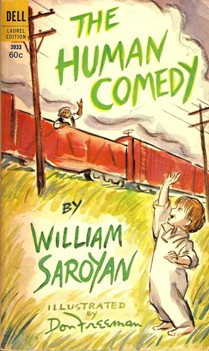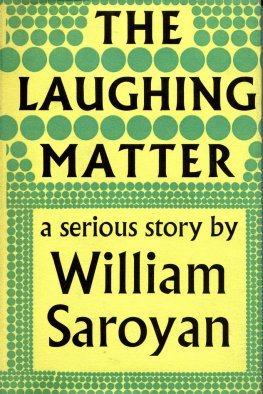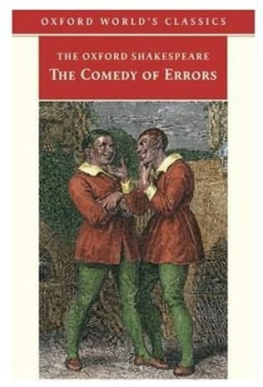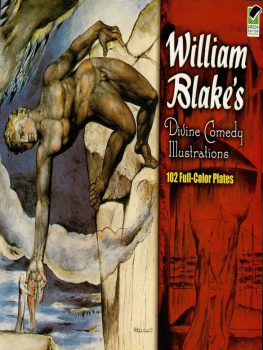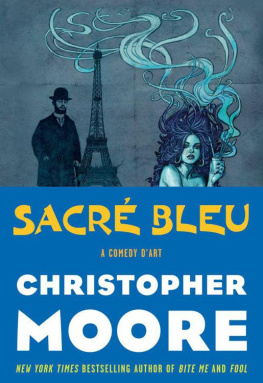William Saroyan - The Human Comedy
Here you can read online William Saroyan - The Human Comedy full text of the book (entire story) in english for free. Download pdf and epub, get meaning, cover and reviews about this ebook. year: 0, genre: Detective and thriller. Description of the work, (preface) as well as reviews are available. Best literature library LitArk.com created for fans of good reading and offers a wide selection of genres:
Romance novel
Science fiction
Adventure
Detective
Science
History
Home and family
Prose
Art
Politics
Computer
Non-fiction
Religion
Business
Children
Humor
Choose a favorite category and find really read worthwhile books. Enjoy immersion in the world of imagination, feel the emotions of the characters or learn something new for yourself, make an fascinating discovery.
- Book:The Human Comedy
- Author:
- Genre:
- Year:0
- Rating:4 / 5
- Favourites:Add to favourites
- Your mark:
- 80
- 1
- 2
- 3
- 4
- 5
The Human Comedy: summary, description and annotation
We offer to read an annotation, description, summary or preface (depends on what the author of the book "The Human Comedy" wrote himself). If you haven't found the necessary information about the book — write in the comments, we will try to find it.
The Human Comedy — read online for free the complete book (whole text) full work
Below is the text of the book, divided by pages. System saving the place of the last page read, allows you to conveniently read the book "The Human Comedy" online for free, without having to search again every time where you left off. Put a bookmark, and you can go to the page where you finished reading at any time.
Font size:
Interval:
Bookmark:
THIS STORY IS FOR
I have taken all this time to write a story especially for you because I have wanted, it to be an especially good story, the very best I might ever be able to write, and now at last, a little pressed for time, I have tried. I might have waited longer still, but as there is no telling what's next or what skill or inclination will be left after everything else, I have hurried a little and taken a chance on my present skill and inclination. Soon, I hope, someone wonderful will translate the story into Armenian, so that it will be in print you know well. In translation the story may read better than it does in English, and, as you have done before, maybe you will want to read some of it to me, even though I wrote the stuff in the first place. If so, I promise to listen, and to marvel at the beauty of our language, so little known by others and so much less appreciated by anyone than by you. As you cannot read and enjoy English as well as you read and enjoy Armenian, and as I cannot read or write Armenian at all, we can only hope for a good translator. One way or another, though, this story is for you. I hope you like it. I have written it as simply as possible, with that blending of the severe and the light-hearted which is especially yours, and our family's. The story is not enough, I know, but what of that? It will surely seem enough to you, since your son wrote it and meant so well.
WILLIAM SAROYAN
San Francisco, 1942


The little boy named Ulysses Macauley one day stood over the new gopher hole in the backyard of his house on Santa Clara Avenue in Ithaca, California. The gopher of this hole pushed up fresh moist dirt and peeked out at the boy, who was certainly a stranger but perhaps not an enemy. Before this miracle had been fully enjoyed by the boy, one of the birds of Ithaca flew into the old walnut tree in the backyard and after settling itself on a branch broke into rapture, moving the boy's fascination from the earth to the tree. Next, best of all, a freight train puffed and roared far away. The boy listened, and felt the earth beneath him tremble with the moving of the train. Then he broke into running, moving (it seemed to him) swifter than any life in the world.
When he reached the crossing he was just in time to see the passing of the whole train, from locomotive to caboose. He waved to the engineer, but the engineer did not wave back to him. He waved to five others who were with the train, but not one of them waved back. They might have done so, but they didn't. At last a Negro appeared leaning over the side of a gondola. Above the clatter of the train, Ulysses heard the man singing:
"Weep no more my lady, O weep no more today
We will sing one song for the old Kentucky home
For the old Kentucky home far away"
Ulysses waved to the Negro too, and then a wondrous and unexpected thing happened. This man, black and different from all the others, waved back to Ulysses, shouting: "Going home, boygoing back where I belong!"
The small boy and the Negro waved to one another until the train was almost out of sight.
Then Ulysses looked around. There it was, all around him, funny and lonelythe world of his life. The strange, weed-infested, junky, wonderful, senseless yet beautiful world. Walking down the track came an old man with a rolled bundle on his back. Ulysses waved to this man too, but the man was too old and too tired to be pleased with a small boy's friendliness. The old man glanced at Ulysses as if both he and the boy were already dead.
The little boy turned slowly and started for home. As he moved, he still listened to the passing of the train, the singing of the Negro, and the joyous words: "Going home, boy going back where I belong!" He stopped to think of all this, loitering beside a china-ball tree and kicking at the yellow, smelly, fallen fruit of it. After a moment he smiled the smile of the Macauley peoplethe gentle, wise, secret smile which said Hello to all things.
When he turned the corner and saw the Macauley house, Ulysses began to skip, kicking up a heel. He tripped and fell because of this merriment, but got to his feet and went on.
His mother was in the yard, throwing feed to the chickens. She watched the boy trip and fall and get up and skip again. He came quickly and quietly and stood beside her, then went to the hen nest to look for eggs. He found one. He looked at it a moment, picked it up, brought it to his mother and very carefully handed it to her, by which he meant what no man can guess and no child can remember to tell.

His brother Homer sat on the seat of a second-hand bicycle which struggled bravely with the dirt of a country road. Homer Macauley wore a telegraph messenger's coat which was far too big and a cap which was not quite big enough. The sun was going down in a somnolence of evening peace deeply cherished by the people of Ithaca. All about the messenger orchards and vineyards rested in the old, old earth of California. Even though he was moving along swiftly, Homer was not missing any of the charm of the region. Look at that! he kept saying to himself of earth and tree, vine and sun and cloud. Look at that, will you? He began to make decorations with the movements of his bike and, to accompany these ornaments of movement, he burst out with a shouting of musicsimple, lyrical and ridiculous. The theme of this opera was taken over in his mind by the strings of an orchestra, then supplemented by the harp of his mother and the piano of his sister Bess. And finally, to bring the whole family together, an accordion came into the group, saying the theme with an easy humor, as Homer remembered his brother Marcus.
Homer's music fled before the hurrying clatter of three incredible objects moving across the sky. The messenger looked up at the airplanes and promptly rode into a small dry ditch. A farmer's dog came swiftly and with great importance, barking like a man with a message. Homer ignored the message, turning only once to spoof the animal by saying "Arp, Arp!" He seated himself on the bicycle again and rode on.
When he reached the beginning of the residential district of the city, he passed a sign without reading it:
Ithaca, California
East, WestHome Is Best
Welcome, Stranger
He stopped at the next corner to watch a long line of Army trucks full of soldiers roll by. He saluted the men, just as his brother Ulysses had waved to the engineer and the hoboes. A great many soldiers returned the messenger's salute. Why not? What did they know about anything?

It was evening in Ithaca when Homer finally drew up in front of the telegraph office. The clock in the window said two minutes past seven. Inside the office Homer saw Mr. Spangler, the manager of the telegraph office, counting the words of a telegram which a tired-looking, troubled young man of twenty or so had just handed him. As he came into the office, Homer listened to Mr. Spangler and the young man.
"Fourteen words collect," Spangler said.
"How long will it take the telegram to get to my mother?" the boy said.
Next pageFont size:
Interval:
Bookmark:
Similar books «The Human Comedy»
Look at similar books to The Human Comedy. We have selected literature similar in name and meaning in the hope of providing readers with more options to find new, interesting, not yet read works.
Discussion, reviews of the book The Human Comedy and just readers' own opinions. Leave your comments, write what you think about the work, its meaning or the main characters. Specify what exactly you liked and what you didn't like, and why you think so.

